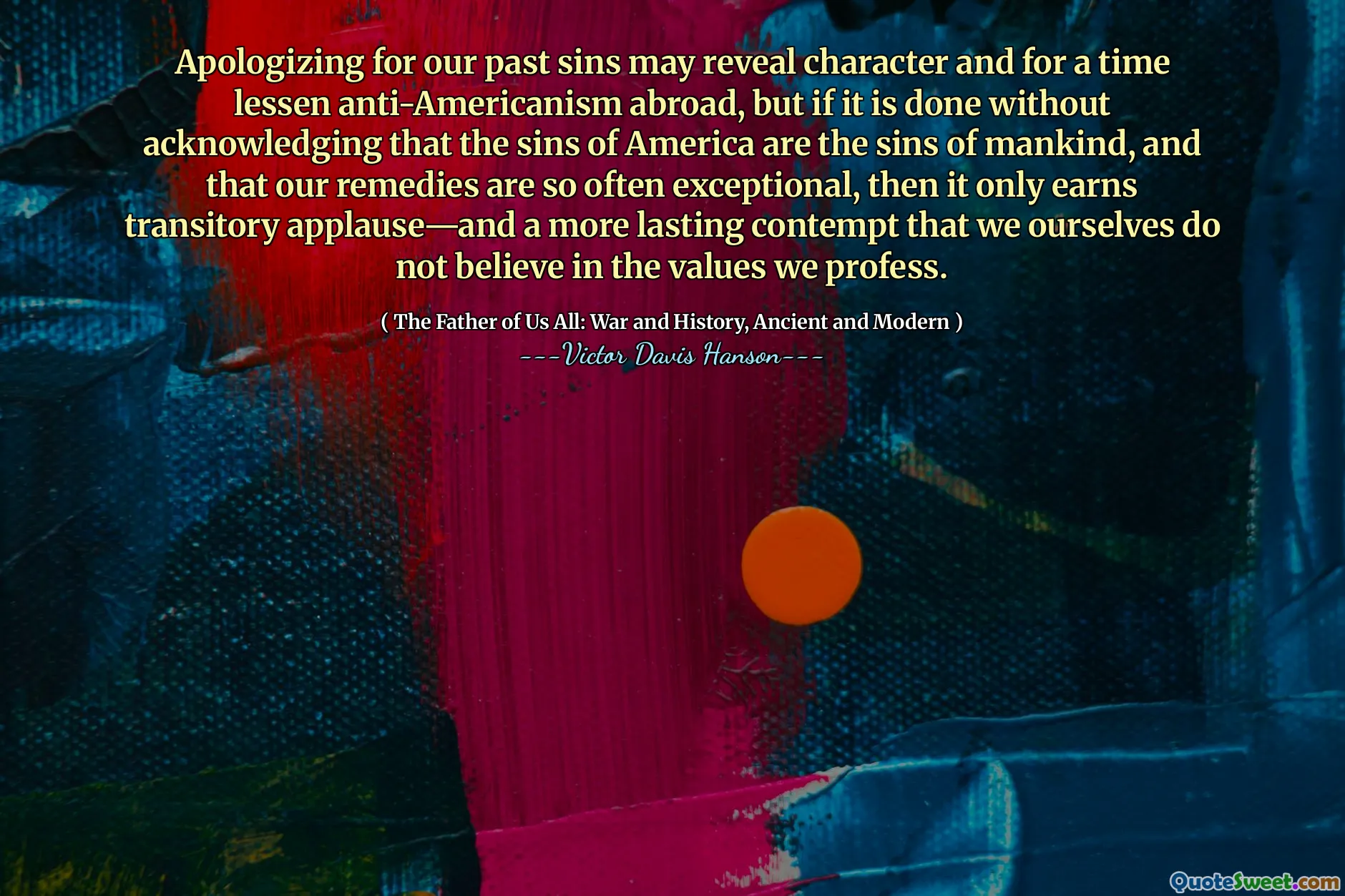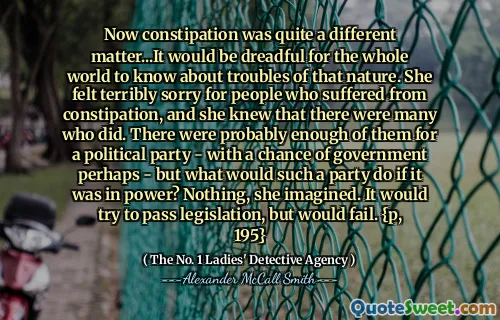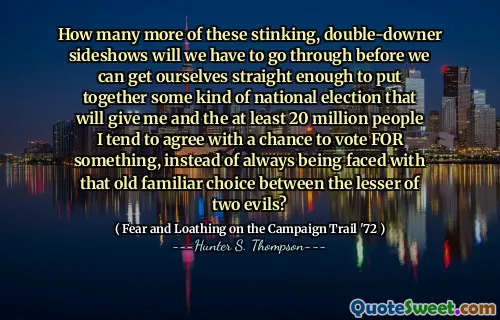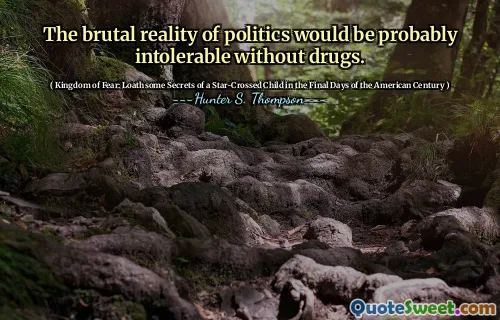
Apologizing for our past sins may reveal character and for a time lessen anti-Americanism abroad, but if it is done without acknowledging that the sins of America are the sins of mankind, and that our remedies are so often exceptional, then it only earns transitory applause—and a more lasting contempt that we ourselves do not believe in the values we profess.
This quote by Victor Davis Hanson offers a compelling commentary on the complex dynamics of national self-reflection and international perception. It suggests that while acknowledging past errors can demonstrate moral integrity and temporarily improve a nation's image—specifically America's—such gestures may fall short if they lack the depth of understanding that those sins are part of a larger human condition. The emphasis on recognizing that America's shortcomings are not unique but shared among all of humanity encourages humility and solidarity rather than boastful repentance. Furthermore, Hanson underscores the importance of conviction in one's values and the recognition that some remedies or solutions are exceptional, possibly revolutionary, rather than universally applicable. When a nation seems to apologize insincerely or dismiss the nobler aspects of its pursuit of justice and progress, it risks being perceived as weak or hypocritical—further damaging its credibility and moral authority. The quote prompts reflection on the balance between honest self-criticism and pride in one's cultural ideals. It reminds us that genuine change and respect come from an authentic acknowledgment of shared human flaws, combined with an unwavering commitment to exceptional principles that elevate society. This perspective is particularly relevant in diplomatic or political discourse, where the legitimacy of one’s moral standing can significantly influence both domestic morale and international relations. Ultimately, Hanson urges an approach rooted in steadfast conviction, humility, and acknowledgment of our collective human fallibility, to uphold values with sincerity rather than rhetorical overstatement.






